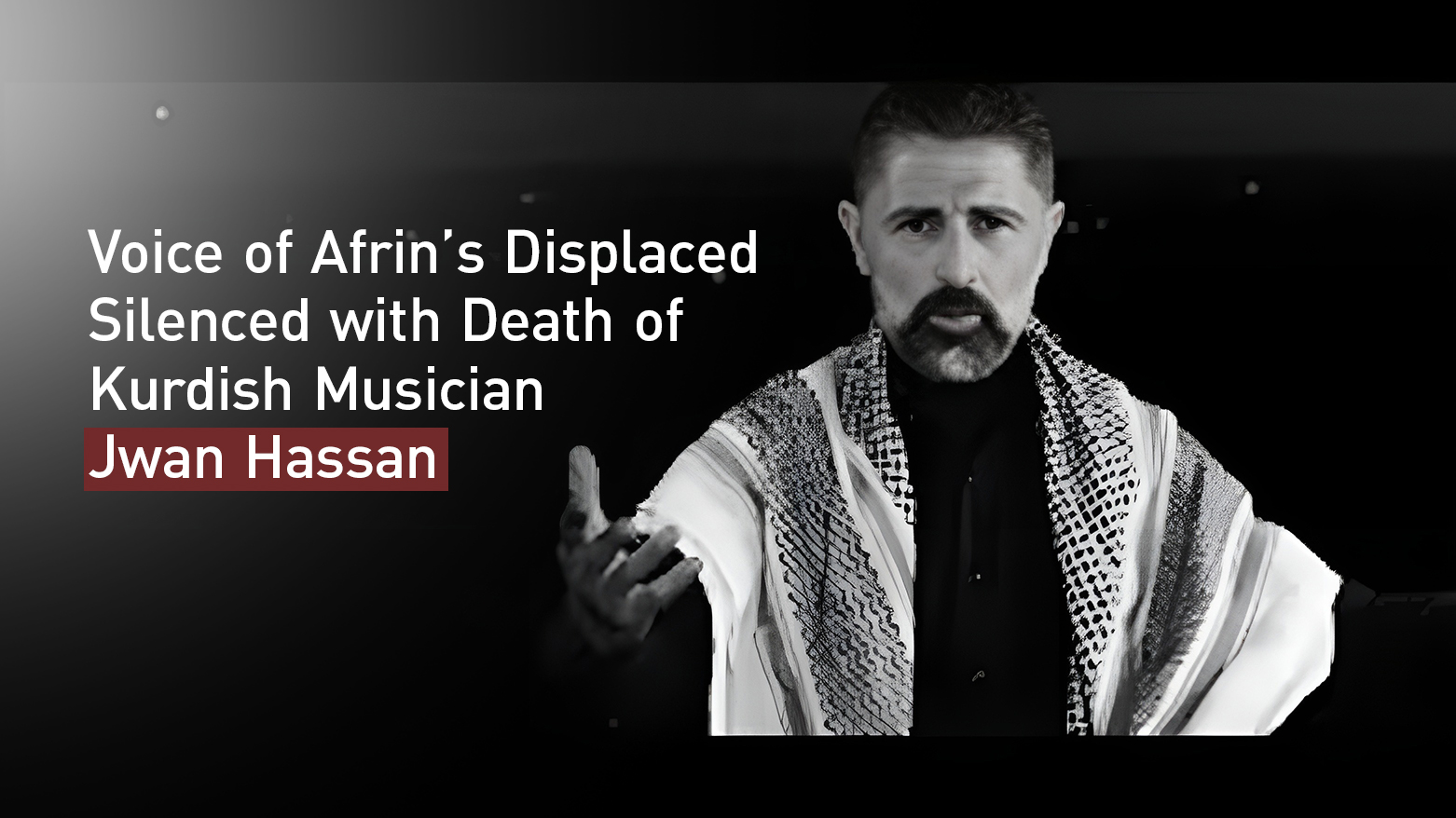Voice of Afrin’s Displaced Silenced with Death of Kurdish Musician Hassan
Jwan Hassan was more than a singer. He was a social figure, a fearless critic of injustice, and a defender of his people’s rights in an environment often marked by repression and fear.

By Ahora Qadi
ERBIL (Kurdistan24) – Prominent Kurdish artist and activist Jwan Hassan passed away late Wednesday night, in a hospital in Aleppo, succumbing to severe burns sustained after a gas cylinder explosion at his home in Amuda, northeastern Syria (western Kurdistan). The tragic incident claimed the life of an artist whose voice had long echoed the pain, displacement, and resistance of Afrin’s Kurdish population.
Hassan, originally from the occupied Kurdish city of Afrin Western Kurdistan, had been forcibly displaced following the 2018 invasion by extremist factions. After years in the hardship of Shahba’s displacement camps, he eventually settled with his family in Amuda in 2024. It was there, surrounded by his beloved flowers and fans, that tragedy struck.
A Cultural Icon and Unyielding Voice
Jwan Hassan was more than a singer. He was a social figure, a fearless critic of injustice, and a defender of his people’s rights in an environment often marked by repression and fear.
Known as the “Voice of Jiayê Kurmênc”, Hassan’s music blended deep-rooted Kurdish folklore with themes of resistance, nostalgia, and longing for freedom. His popularity on social media reflected a strong base of admirers, not only for his melodies but for his unwavering commitment to his people’s cause.
Jwan was one of the rare artists who publicly condemned all who failed the Kurdish people, regardless of authority or consequence. In a time when arbitrary arrests were rampant, his courage became a symbol of cultural defiance.
From Teacher to Musical Luminary
Born in 1980 in Afrin, Hassan began his journey in education, graduating from the Teacher Preparation Institute in Azaz. It was during his studies that he discovered his passion for music, mastering the Saz (a traditionally Kurdish musical instrument) and earning distinction for three consecutive years as one of the region’s most talented players.
He went on to teach Kurdish language and trained the first cohort of Kurdish language instructors in Afrin in 2011. But after displacement, music became both refuge and resistance.
He joined the Cultural Center in Shahba, and through his performances and compositions, he continued to serve the Kurdish cause—collaborating with iconic artists such as Şivan Perwer, Beland Ibrahim, and Hikmet Cemîl.
A Home Adorned with Roses, a Life Rooted in the Homeland
Known for his deep love of flowers, Hassan’s home—both in Afrin and later in Amuda—was famously wrapped in vibrant roses, symbolizing the beauty and fragility of Kurdish culture. His commitment to staying among his people, rather than seeking refuge abroad, further elevated him in the eyes of his community.
"Jwan Hassan was a committed artist who chose to remain on his homeland’s soil, among a displaced nation, offering his art as a form of steadfastness and remembrance," one local tribute read.
Mourning and Legacy
The tragic fire that took his life sent shockwaves through Kurdish communities. On platforms like X, friends and admirers poured out messages of grief and solidarity, highlighting the profound impact of his music and activism.
His passing represents not just the loss of a musician, but the silencing of a voice that gave sound to the dreams and struggles of a people uprooted from their land.
“Jwan Hassan was more than a performer—he was a symbol of resistance, unity, and heritage,” many wrote. “His voice may be gone, but his melodies and message will echo through the hearts of his people for generations.”
